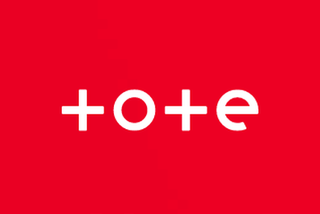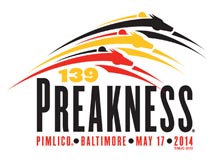Related Research Articles

Parimutuel betting or pool betting is a betting system in which all bets of a particular type are placed together in a pool; taxes and the "house-take" or "vigorish" are deducted, and payoff odds are calculated by sharing the pool among all winning bets. In some countries it is known as the tote after the totalisator, which calculates and displays bets already made.

A tote board is a numeric or alphanumeric display used to convey information, typically at a race track or at a telethon.

Sports betting is the activity of predicting sports results and placing a wager on the outcome.
In 2017, Tatts Group combined with Tabcorp Holdings Limited under the Tabcorp brand.

The Totalisator Agency Board, universally shortened to TAB or T.A.B., is the name given to monopoly totalisator organisations in Australia, New Zealand and South Africa. They operate betting shops and online betting. They were originally government owned, but in Australia most have been privatised. In Victoria, for instance, the Victorian Totalisator Agency Board began operating in March 1961 as a state enterprise, and was privatised in 1994.

Stronach Group, doing business as 1/ST, is an entertainment and real estate company in North America with Thoroughbred horse racing and pari-mutuel wagering at the core.

TAB New Zealand, previously known as the New Zealand Racing Board (NZRB) and the Racing Industry Transition Agency (RITA), is a statutory monopoly for New Zealand sports betting, including betting on horse racing and greyhound racing. It was established under the Racing Act 2003 to operate the TAB, promote the racing industry and maximise the profits of the industry. It broadcasts racing on two television channels TAB Trackside 1 and TAB Trackside 2.
Henry Lobe Straus was an American electrical engineer, horse and cattle breeder, sportsman, entrepreneur and computer pioneer.
A daily double is a parimutuel wager offered by horse and dog racing tracks in North America. Bettors wager on the winners of two races, pre-designated by the track for a particular race day. The Daily Racing Form's glossary defines a daily double as two consecutive races.. Because of the increased difficulty of picking two straight winners, winning daily double bets pay off at higher odds than betting both horses to win, or even parlaying them, due to the lack of a second win takeout. The daily double is usually the first two races on the card, but most racetracks have now included a "late daily double"
A betting pool, syndicate, sports lottery, sweep, or office pool if done at work, is a form of gambling, specifically a variant of parimutuel betting influenced by lotteries, where gamblers pay a fixed price into a pool, and then make a selection on an outcome, usually related to sport. In an informal game, the vig is usually quite small or non-existent. The pool is evenly divided between those that have made the correct selection. There are no odds involved; each winner's payoff depends simply on the number of gamblers and the number of winners.

Light & Wonder, Inc., formerly Scientific Games Corporation (SG), is an American corporation that provides gambling products and services. The company is headquartered in Las Vegas, Nevada.

Tote Ireland is an Irish gambling company founded in 1929. It is Ireland’s largest pool betting operator. Its product offering also includes sports betting. Business operations are led from its headquarters in Kildare.
The 2002 Breeders' Cup betting scandal was an incident that arose when computer programmer Chris Harn conspired with two friends, Derrick Davis and Glen DaSilva, to manipulate bets in the 2002 Breeders' Cup, held at Arlington Park in Arlington Heights, Illinois. This enabled him to arrange a $3 million USD payout to the trio. The scam was exposed when 43-1 longshot Volponi won the Breeders' Cup Classic. This unanticipated victory made Davis the sole winner of the Pick 6 jackpot. Eventually, Harn, Davis and DaSilva entered pleas of guilty.
Glossary of North American horse racing:
Xpressbet, LLC is a subsidiary of Stronach Group Company founded in 2002 and based in Washington, Pennsylvania. The company provides pari-mutuel action services that enable account holders to watch and wager on thoroughbred, harness, and quarter horse racing virtually. The company also provides handicapping resources, such as daily picks, wagering guides, newsletters, blogs, and columns. Xpressbet, LLC provides wagering services to nearly 200 racetracks in North America, Australia, Europe, South Africa, and the Middle East. It also offers back-end or white label wagering services for other Account Deposit Wagering (ADW) suppliers.
Historical horse racing (HHR), originally known as Instant Racing, is an electronic gambling product that allows players to bet on replays of horse races or dog races that have already been run, using terminals that typically resemble slot machines.
Horse racing in the United States dates back to 1665, which saw the establishment of the Newmarket course in Salisbury, New York, a section of what is now known as the Hempstead Plains of Long Island, New York. This first racing meet in North America was supervised by New York's colonial governor, Richard Nicolls. The area is now occupied by the present Nassau County, New York, region of Greater Westbury and East Garden City.

The 2014 Preakness Stakes was the 139th running of the Preakness Stakes. The race was scheduled to start at 6:18 pm Eastern Daylight Time (EDT) on May 17, 2014 at Pimlico Race Course and was run as the twelfth race on a racecard with thirteen races. The race was won by California Chrome, giving him a chance to win the Triple Crown at Belmont. It is the thirty-fourth time a horse has won the first two legs of the Triple Crown. The Maryland Jockey Club reported a track record total attendance of 123,469, the second highest attendance for American thoroughbred racing events in North America during 2014.

Betting on horse racing or horse betting commonly occurs at many horse races. Modern horse betting started in Great Britain in the early 1600s during the reign of King James I. Gamblers can stake money on the final placement of the horses taking part in a race. Gambling on horses is, however, prohibited at some racetracks. For example, because of a law passed in 1951, betting is illegal in Springdale Race Course, home of the nationally renowned Toronto-Dominion Bank Carolina Cup and Colonial Cup Steeplechase in Camden, South Carolina.
Harness racing, is a popular sport in Sweden, with significant amounts of money wagered annually. In Sweden there are 33 harness racing tracks, which hold over 850 meetings annually. There are approximately 3,000 drivers and 6,000 trainers with about 18,000 horses in training.
References
- ↑ "Racetrack Betting Mechanized". CHM. 2013-07-31. Retrieved 2022-11-02.
- ↑ Strauss, harry Lobe (September 14, 2021). "Harry Lobe Straus papers 2186" (PDF). Hagley Library.
- ↑ Straus, Harry (September 14, 2021). "Harry Lobe Straus pepers 2186" (PDF).
- ↑ Lasar, Matthew (18 September 2011). "UNIVAC: the troubled life of America's first computer". Ars Technica. United States. Retrieved 9 May 2016.